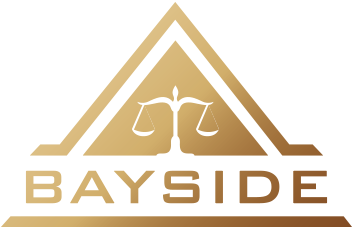Property Investment Management
Investing in Thailand requires market insight, patience and good advisory. Thailand is a success story among emerging countries. Its economy can be summarized in 3 words: strong, stable and diversified.

Why Buy Property in Thailand?
WHAT THE WORLD BANK SAYS ABOUT THAILAND
- “Thailand became an upper-middle income economy in 2011. Over the last four decades, Thailand has made remarkable progress in social and economic issues, moving from a low-income country to an upper-income country in less than a generation.
- As such, Thailand has been one of the widely cited development success stories, with sustained strong growth and impressive poverty reduction. It is expected to enter the group of high-income countries in 2026”
Source: World Bank (October 2015)
A Glimpse towards Thai Economy
- Diversified economy (car industry, hardware, tourism, agriculture, food industry, telecommunications, tourism, etc.)
- GDP growth (5% average in the last 30 years) and inflation (3% average) are remarkably low for an emerging country
- 68 million inhabitants with strong middle-class of 12 million (similar to Malaysia) – Vs. 1.5 mln only in Indonesia and Vietnam
- High employment (officially 0% unemployment rate)
- Remarkable resilience to internal crises (political unrest, natural disasters, 17 coups since 1950)
- 3rd most promising emerging market in the world in 2013
- http://www.bloomberg.com/news/photo-essays/2013-01-31/the-top-20-emerging-markets
- 26th country in the world for the ease of doing business (see table below) well ahead of all most Asian countries except Singapore, Malaysia and Hong Kong
- At the heart of the Asian Economic Community (AEC)
- Massive infrastructure development plans (Bangkok mass-transit system, high-speed trains in Thailand and with China, water management, express ways, Dawei’s port joint development with Myanmar, etc.)
- 800 Billion THB of foreign direct investments in 2015 (740 Bln in 2014), 25% from Japan
- Large hub for Japanese manufacturers (car industry, industrial equipment, electronic devices)
- Bangkok was the most visited city in the world in the first half of 2016 (Tourism represents circa 15% if the GDP)
- New hub for e-commerce, attractive environment for start-ups
- Attractive tax regime (low social contributions, low tax on capital gains, very low tax on property transactions, etc.)
- Moderate and tolerant social and religious environment (90% Buddhist)
- Neutral on geopolitical stage (often called “Switzerland of Asia”)
CONCLUSION
- Thailand has a strong, diversified and stable economy, far from the choppy double-digit standards of most emerging countries
- Its remarkable resilience to both internal and external crises and promising prospects for the next decades make it an attractive place to invest in.
Why Choose Us as Real Estate Portfolio Managers?
Like you might pay someone to manage an investment portfolio of stocks, bonds, cash, and equities, in the corporate world, a real estate portfolio manager like us focuses on the properties owned and leased by a company. Our goal is to make sure the sum value of the properties—both their tangible worth and their contributions to operations—benefit a company or an individual investor.
We determine how facilities fit within the growth strategy of the company. They’re charged with looking at how the company’s resources are allocated, what risk real property poses for the company, and how to best leverage individual properties for greater portfolio performance.
In a nutshell, we at Bayside Property & Law Firm make sure a company’s investment in property is worth the ROI is offers. Rather than dissecting the microcosm of any individual property, we make higher-level decisions that affect the company at large—decisions like whether to move headquarters, consolidate facilities, or buy vs. lease a property. Most important, we juxtapose real property to the business in fundamental ways that allow for better decision-making.
Our Chief Tasks as A Portfolio Manager
Because we deal with the performance of an entire portfolio of properties, our role shifts to broader considerations. We may make decisions affecting specific properties, but we do so with the intent to affect better performance for the portfolio at large. Some of the chief tasks we’re engaged in include:
Asset allocation: Real estate is an asset, but there are smaller assets within each property that contribute to its revenue output. Allocation of assets—including budgeted capital—can affect the performance of a portfolio by enhancing the revenue-generating capabilities of specific properties. The simplest example might mean moving unused assets from Location A to Location B, where they become part of a revenue stream.
Risk adjustment: Real estate carries risk. As an asset, that risk manifests in the form of debt on a balance sheet. Our job is to ensure the collective ROI of properties is enough to outweigh their risk, and to understand which properties in the portfolio are riskier vs. safer. Risk adjustment can involve making decisions like where to allocate funds for capital improvements, to mitigate the risk of future costs.
Transaction supervision: Similar to a securities portfolio, properties may enter or leave the fold of a real estate portfolio. As they do, we need to see that they’re purchased and divested the right way. This can involve everything from overseeing the financial transaction to receiving or divesting the property as an asset on the balance sheet.
Execution of asset strategy: Real estate needs to align with the company’s goals and trajectory, and serve to move it forward. It’s our job as real estate portfolio managers to make sure real estate serves its intended purpose, whether that’s solely revenue production or strategic goals. When real
estate and company goals align, the business can move forward with a cohesive operational strategy.
All these tasks lay the groundwork for one final, critical objective: to liaise with executives and other stakeholders and support data-backed decision-making involving real estate. We as portfolio managers work to understand the effect of company decisions on real estate, as well as relay real estate information to help influence those decisions.
Purchase of Condominium Units in Thailand
Bayside Property & Law Firm accompanies foreign investors smoothly through the process of purchasing condos in Thailand.
Buying a condominium unit in Thailand has become easy and straightforward since the “1992 Condominium Act”, and is accessible to all foreigners (individual or company)
The 3 conditions to purchase a condo as a foreigner
All the conditions listed below must be checked by your property agent and your lawyer before the acquisition
1) The residence is registered as a condominium
2) The funds necessary to purchase the condo must have originated from outside Thailand, in foreign currency (EUR, USD, HKD, SGD, GBP, AUD, etc.).
The Thai bank that receives the funds issues a Foreign Exchange Transaction Form. The foreign buyer must present this form to the land department to become the legal owner of the condo. The purpose of the transaction must be indicated (ex: “purchase of a unit in the condominium X”).
If you don’t have a Thai account, you can send the funds to the account of your Thai lawyer assisting in the transaction.
3) The foreign quota of 49% of the total space of all units in the residence is not reached yet See section 19 of the Condominium Act on http://www.dol.go.th/low_ministry/commandment/condo_no3_2542.html
In case the quote is already reached (some condos are in this case already, contact us for more information), the solution is to purchase the condo through a Thai company.
Purchase of Other Types of Properties By Foreigners In Thailand.
- Foreigners are allowed to own directly standalone properties (land, house, villa, hotel, factory...) but they cannot directly own the land on which the property is built.
- However, numerous villa developments targeting foreigners offer a legal structure offered based on leasehold investment, generally 30 years extendable, sometimes more…
- Owning a land through a Thai company is also possible for foreigner buyers.
Checklist for Buying A Condo In Thailand
Buying a condo as an individual or a company:
- Identification of the costs implied (purchase price, taxes and commission)
- Checking of the residence (financials, status, ongoing works, etc.)
- Paperwork (Memorandum of Understanding, Sale and Purchase Agreement)
- Technical inspections
- Transfer of ownership
- Registration of the condominium unit by a foreign owner
Taxes on Property Transfer (Conveyance Taxes)
Compulsory taxes paid on the ownership transfer date to the local Land Department where the condo is registered
Whether the taxes are paid by the purchaser or the seller is decided during the negotiation with the help of your property agent. The taxes are to be paid by cashier check only. The identity of the payer does not matter. In case the taxes are paid by the buyer,
There are in all cases 3 conveyance taxes:
- Transfer Fee
- Withholding tax (also called “Income Tax”)
- Special Business Tax (also called “Business Tax”) OR Stamp Duty (either of these)
Depending on the nature of the tax, the calculation is based on:
- The condo assessed value by the land department; and/or
- The selling price declared to the Land Department; and/or
- The duration of ownership of the condo
Conveyance Taxes If the Seller Is an Individual*
* Thai or foreign
Transfer fee 2% of the appraised value of the property
Withholding tax Based on i) the appraised value of the property and ii) the duration of ownership Progressive rate until 8 years of ownership - regressive after In the range of 1.05% to 5.60% of the appraised value
Special Business tax 3.3% of the appraised value of the property OR the transaction price, whichever is higher Applies if the property is sold within 5 years after the purchase
OR Applies if the property is sold within 5 years after the purchase Exception: If the property is registered as a first home in the "Yellow Book", only applies if sold within 1 year
Stamp Duty 0.5% of the appraised value of the property OR the transaction price, whichever is higher => Applies whenever the Special Business Tax doesn't apply
Conveyance Taxes If the Seller Is A Company*
* Thai or foreign
Transfer fee 2% of the appraised value of the property
Withholding tax 1% of the appraised value of the property OR the transaction price, whichever is higher
Special Business tax 3.3% of the appraised value of the property OR the transaction price, whichever is higher => Applies without exceptions
Tax on Fund Repatriation
NO TAX applicable to foreigners who repatriate their funds resulting from the sale of a condominium unit as long as the conveyance taxes due at the resale have been paid in full
Tax on Capital Gain
NO TAX
Tax on Ownership
Also called “Land and House Tax”
NO TAX
Taxes only apply for houses or any other type of standalone building
Tax on Rental Income
In theory, the tax amounts 15% of the annual rental income if the owner is a foreigner (5% if Thai company)
In practice, the tax doesn’t apply as the income is self-declared, and most tenants are individuals who don’t request a receipt for the payment of the rent.


